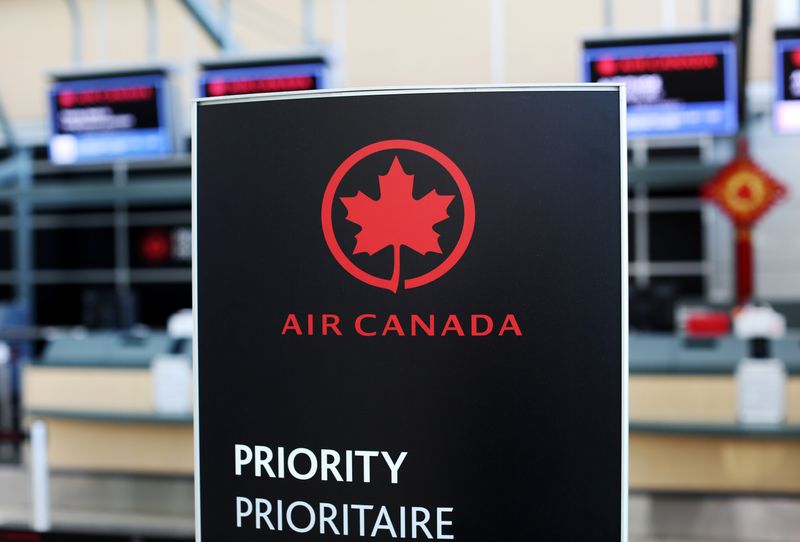By Rod Nickel
WINNIPEG, Manitoba (Reuters) - Canadian Prime Minister Justin Trudeau said on Saturday he would look at possible ways to help airlines further, but laid out no new measures after the country's biggest airline announced mass layoffs due to the coronavirus pandemic.
Air Canada said on Friday it would cut its workforce by up to 60% as the airline tries to save cash amid the COVID-19 pandemic and adjust to a lower level of traffic.
"This pandemic has hit extremely hard on travel industries and on the airlines particularly," Trudeau said in a briefing in Ottawa. "That's why we're going to keep working with airlines, including Air Canada, to see how we can help even more."
Canada has already put in place a wage subsidy to try to keep more Canadian workers on payrolls, and recently announced loans for large employers.
Trudeau sidestepped questions about whether his government may take an equity stake in Air Canada to help it survive, and whether its layoffs suggest the wage subsidy is not working.
Restoring demand for flights is likely to take years, John Gradek, lecturer at McGill University's Global Aviation Leadership Program, told CBC News.
"My interpretation is that Air Canada is playing hardball with the government, indicating that ... the industry is going to need billions."
Asked why Air Canada did not use the government's wage subsidy instead of issuing layoffs, a representative of the airline repeated a statement that normal traffic levels "will not be returning anytime soon."
Canada's coronavirus death toll rose 1.7% to 5,595 from the previous day, reflecting a declining mortality rate. Total cases rose to nearly 75,000.
Trudeau also said his government had approved the first Canadian clinical trials of a potential COVID-19 vaccine, at Dalhousie University's Canadian Center for Vaccinology in Nova Scotia.
The candidate vaccine was developed by Chinese pharmaceutical company CanSino Biologics, two Canadian government spokesmen said.
Canada's National Research Council on Tuesday said it was collaborating with CanSino to "pave the way" for future Canadian trials.
The council will work with manufacturers so that the vaccine can be produced in Canada if the trials are successful, Trudeau said.
Even as the countries collaborated on a possible vaccine, China's consulate in Calgary rebuked Alberta Premier Jason Kenney for earlier critical remarks.
Kenney said on Thursday that China would face a "great reckoning" for trying to cover up the dangers posed by the new coronavirus when it first appeared, the Canadian Press reported.
The consulate, in a statement on its website, said "facts and data" prove that China did no such thing.
"We are defending ourselves with facts and reasons rather than slander and stigma," it said.

Kenney's spokeswoman said his comments speak for themselves.